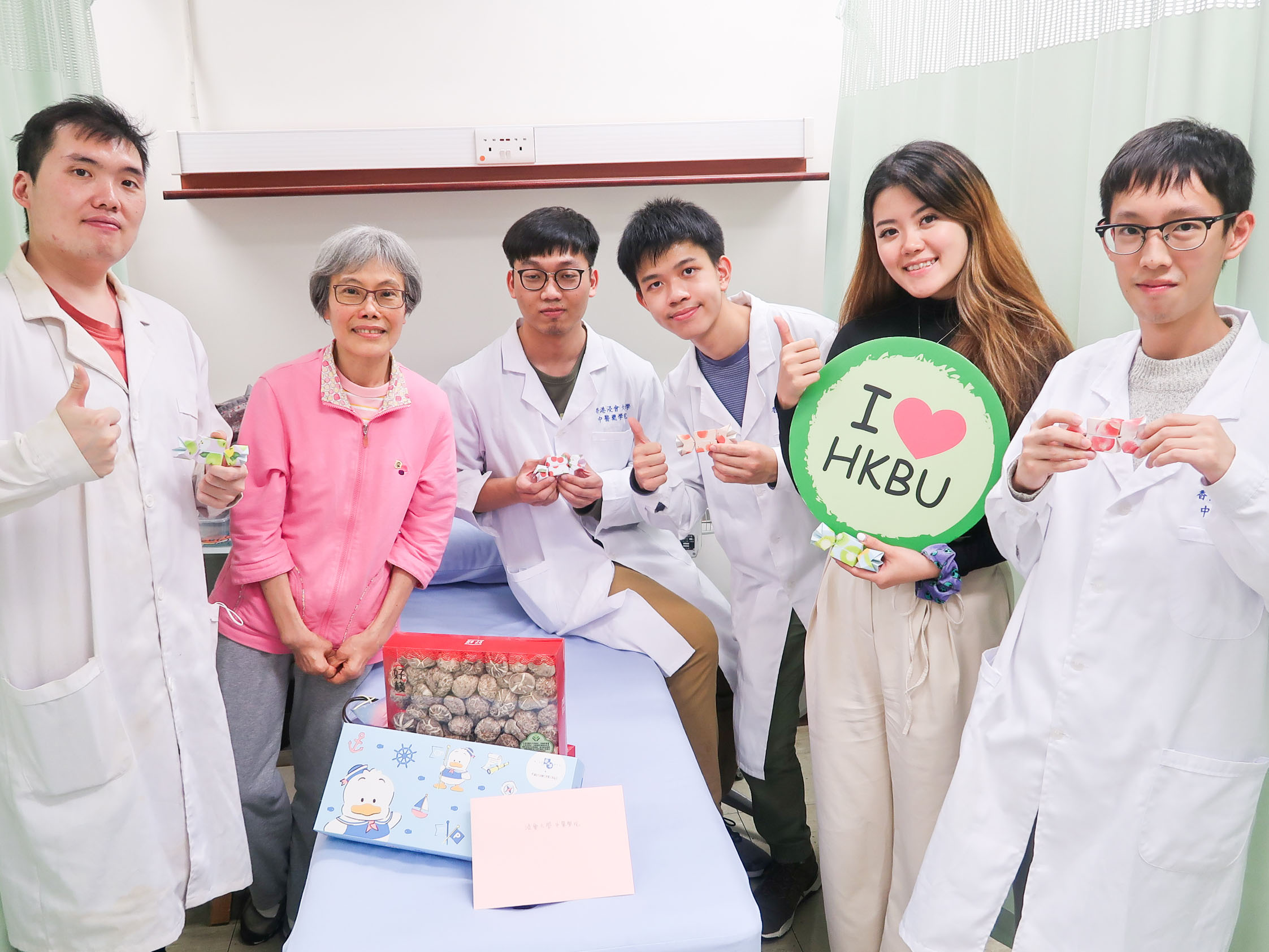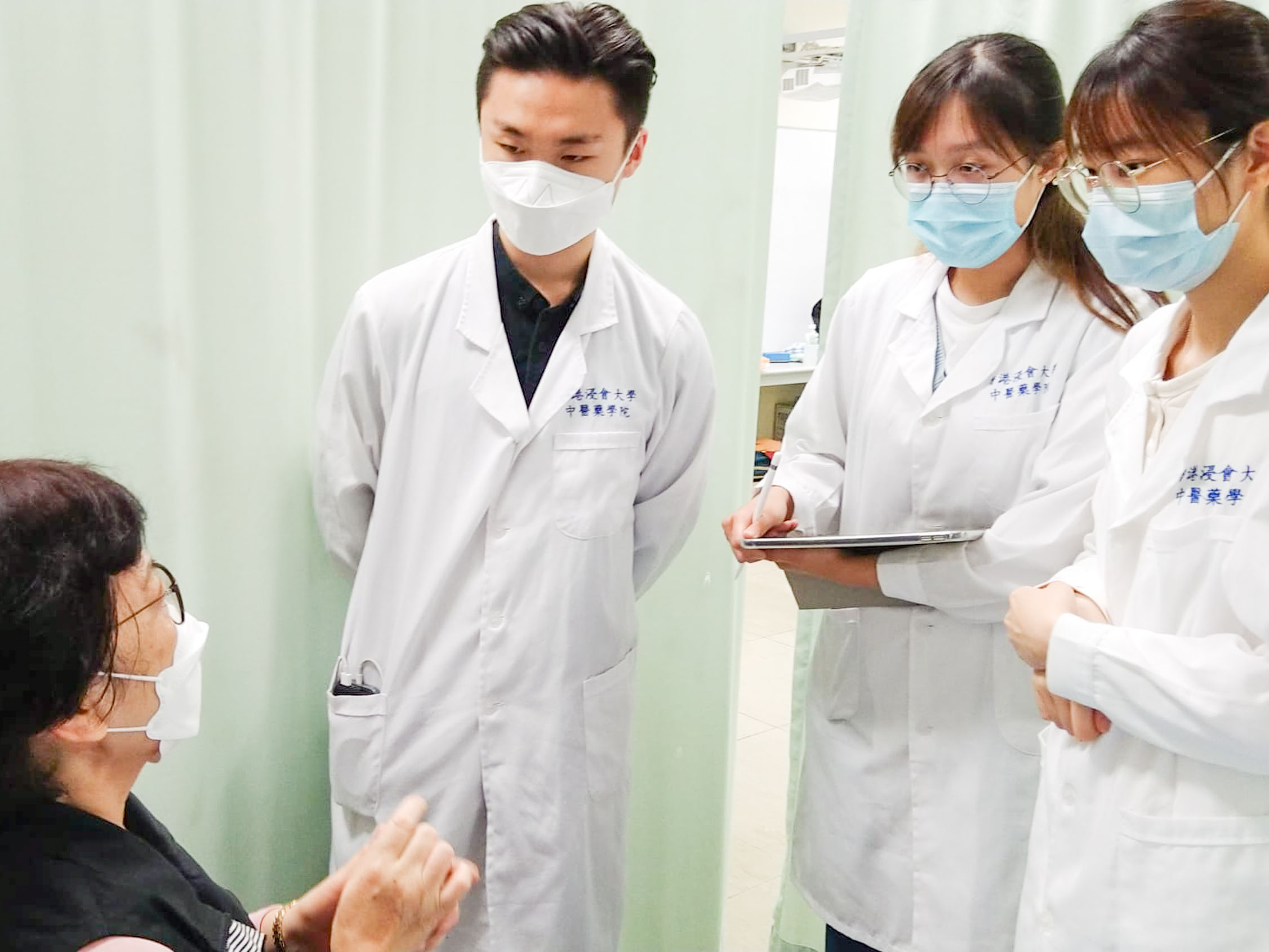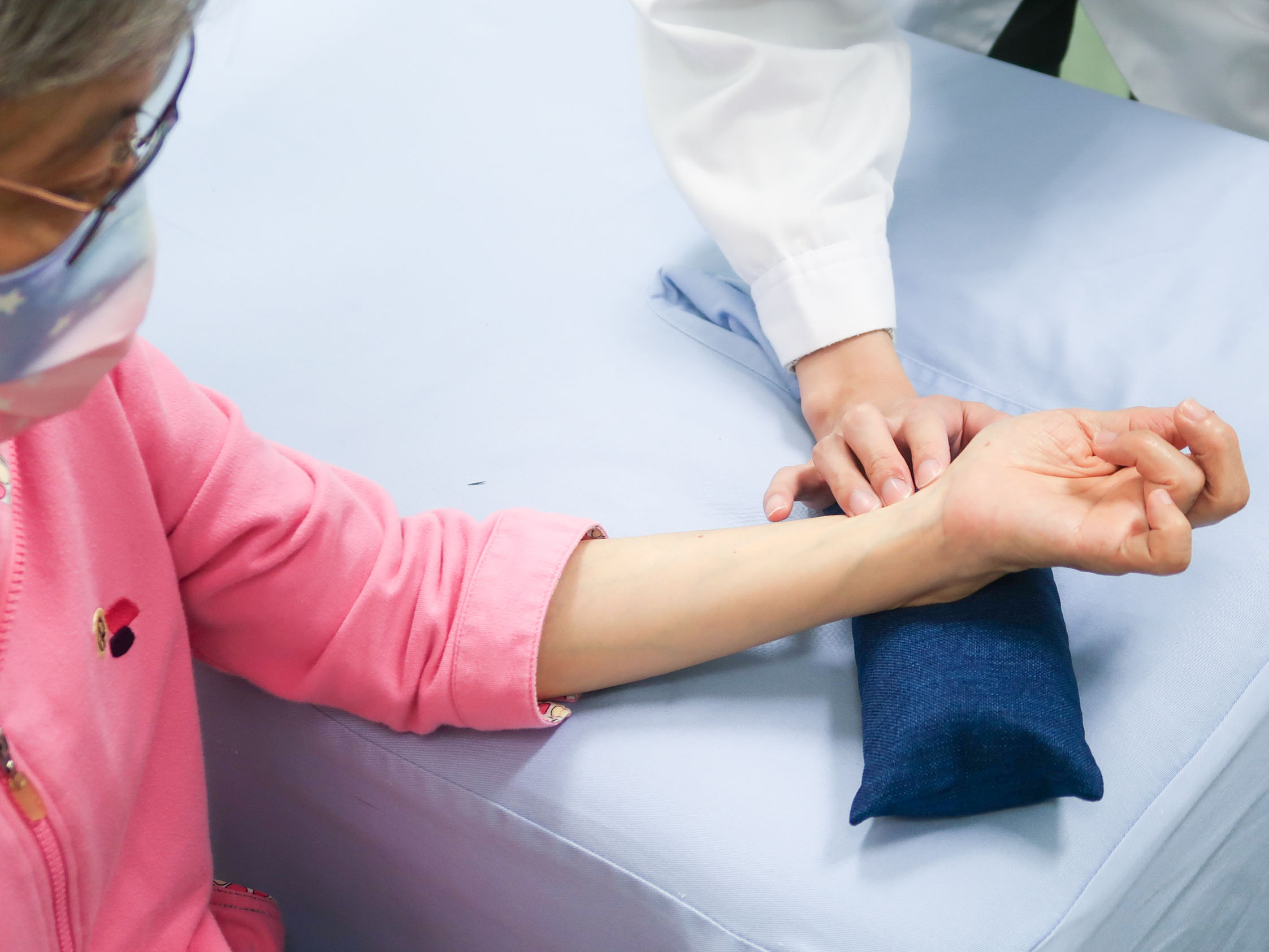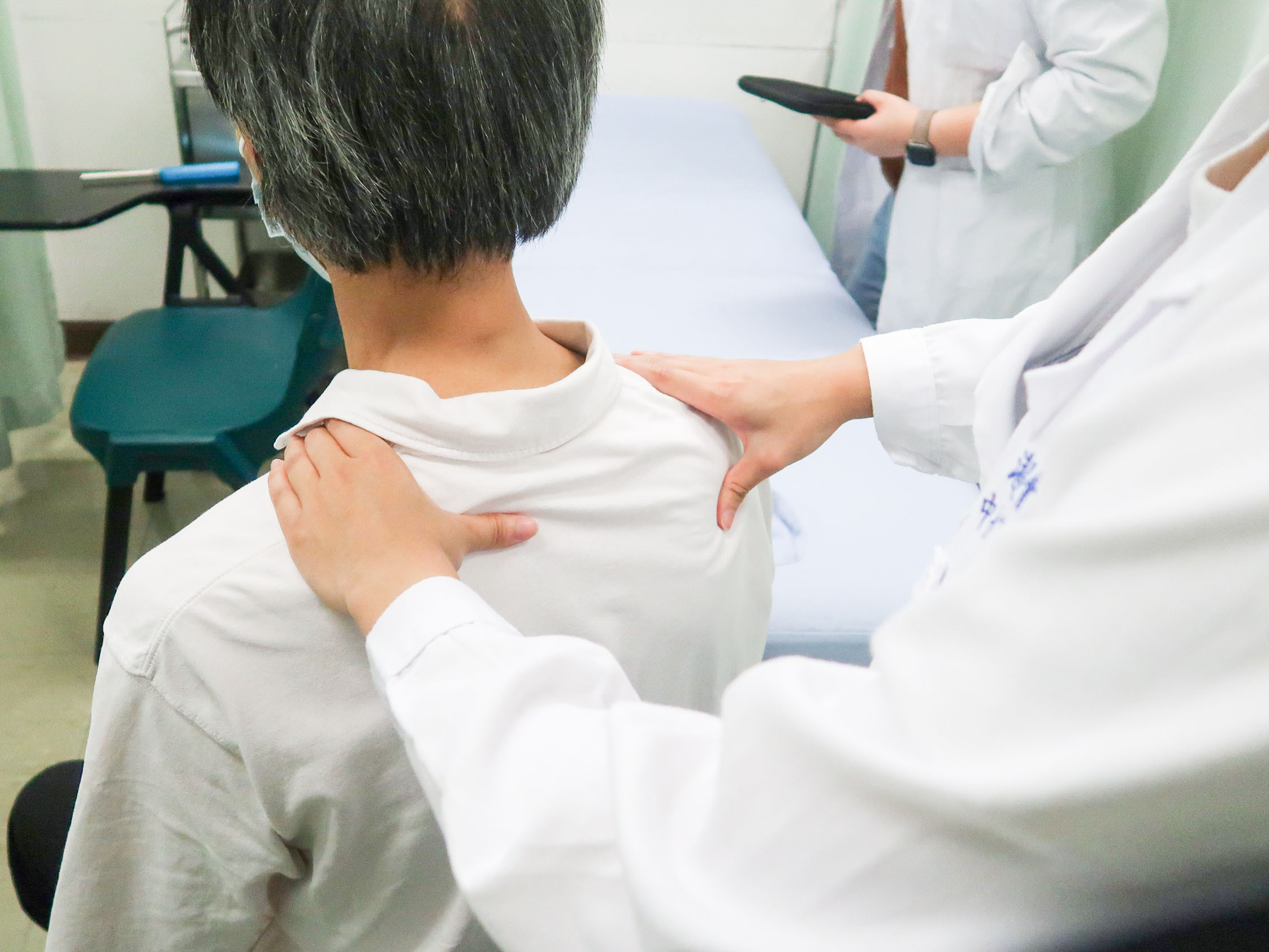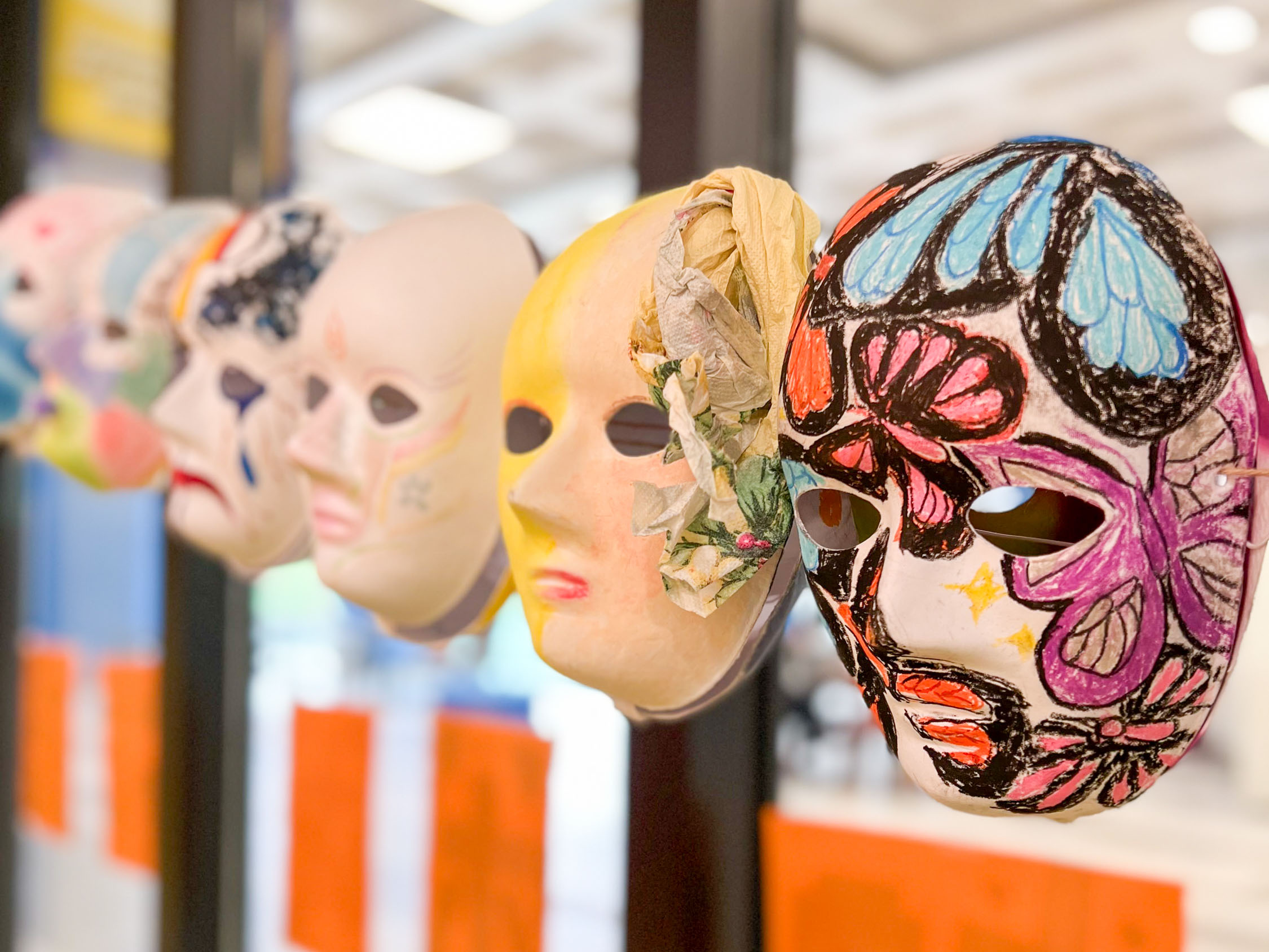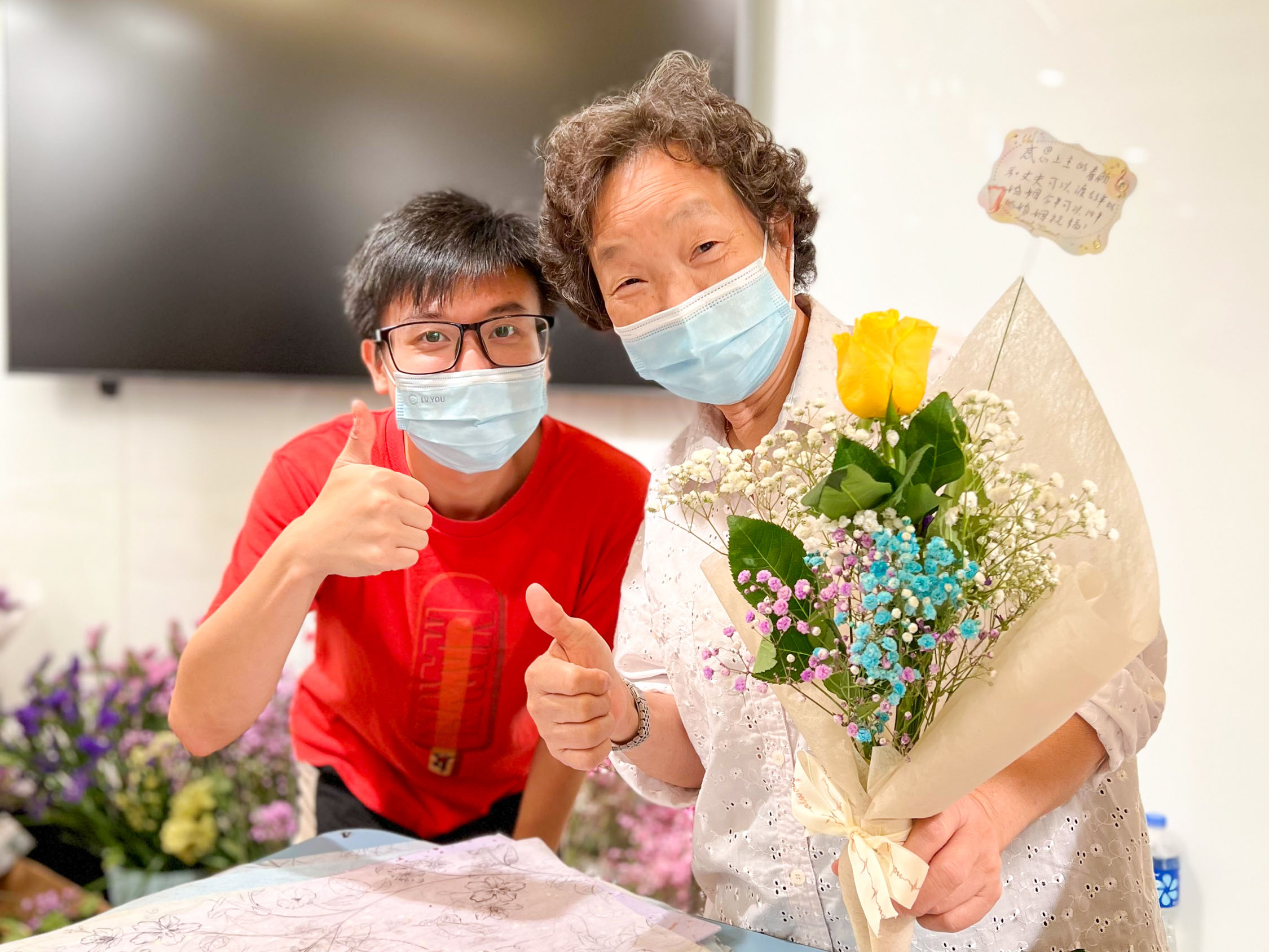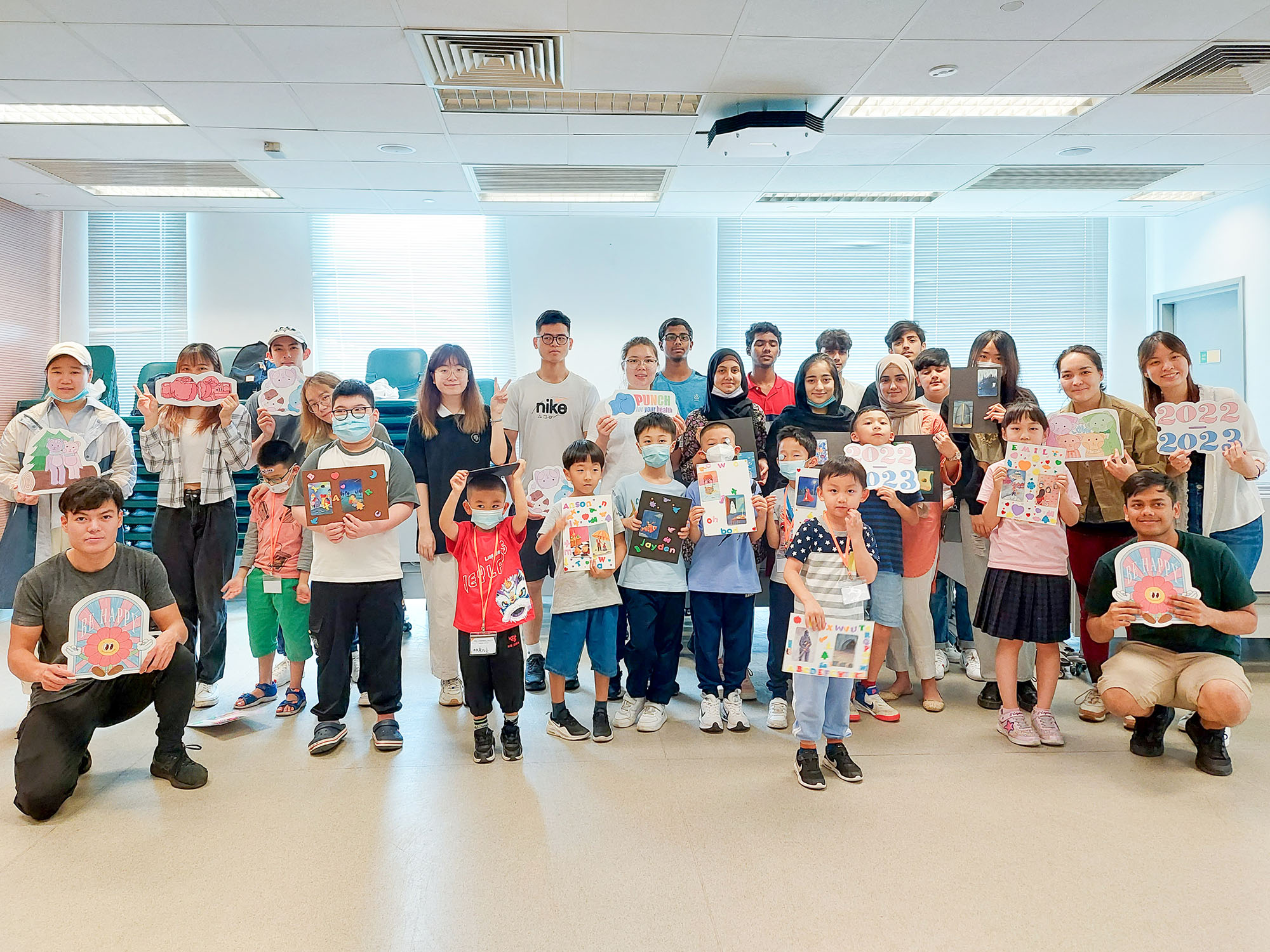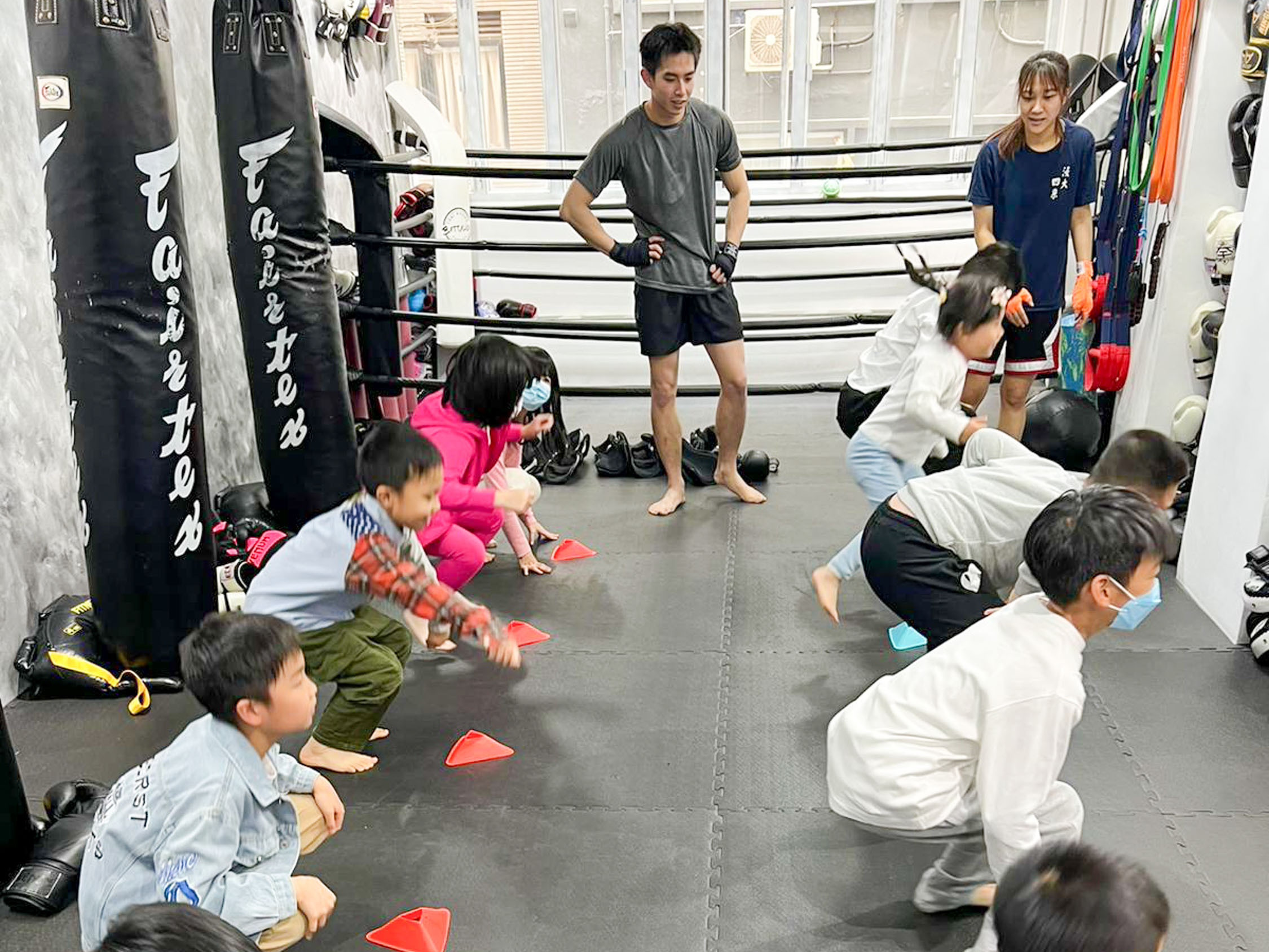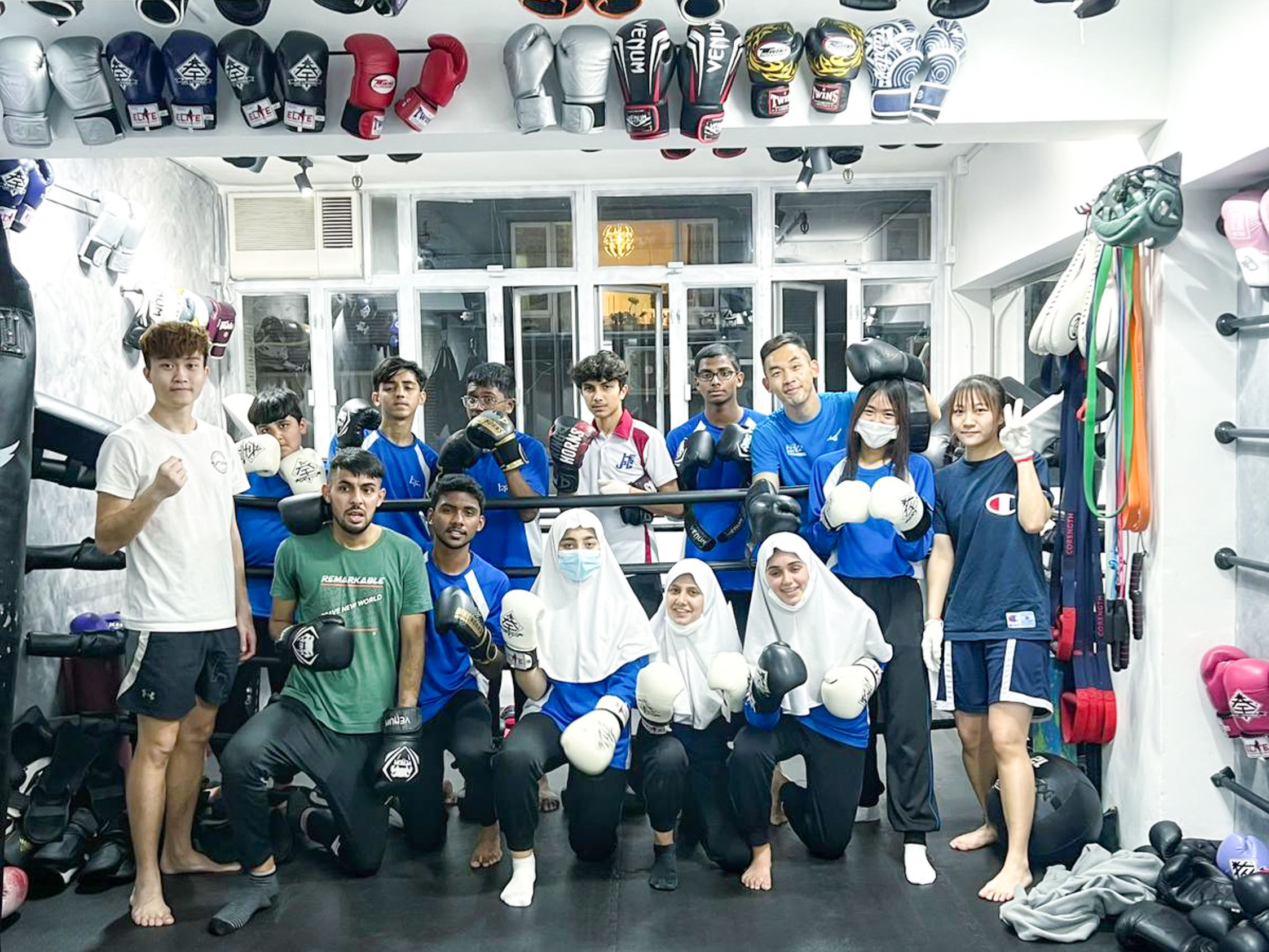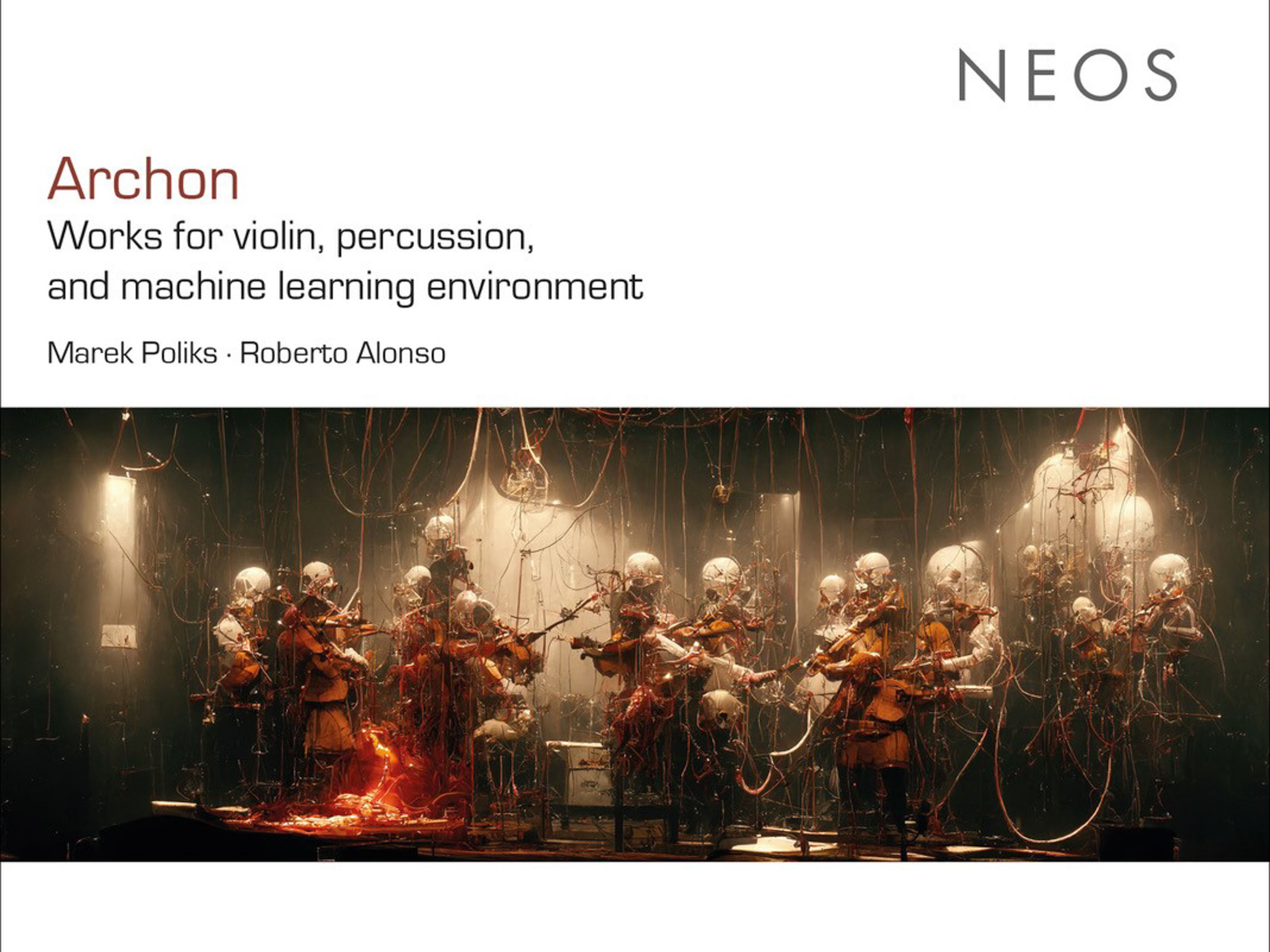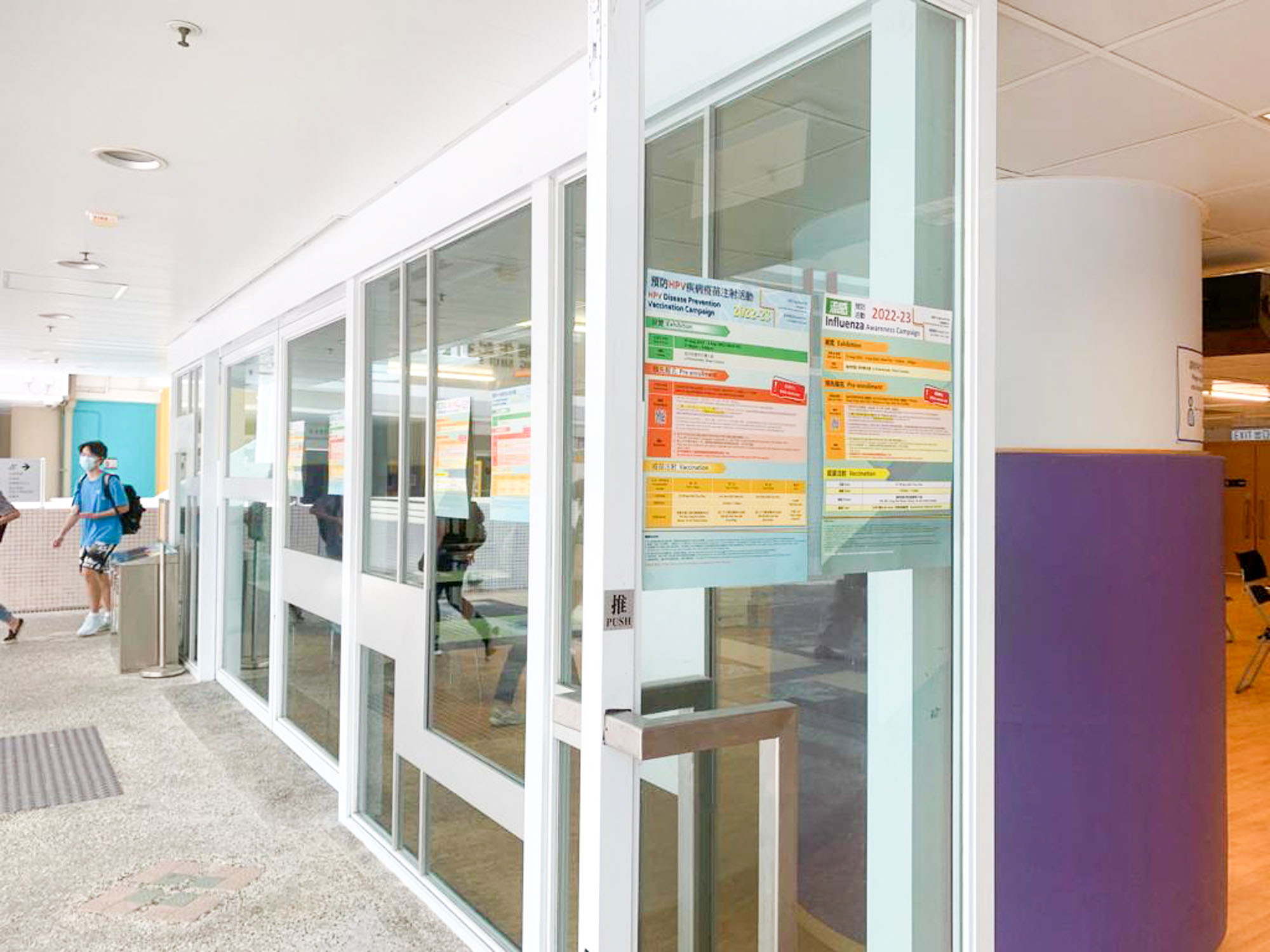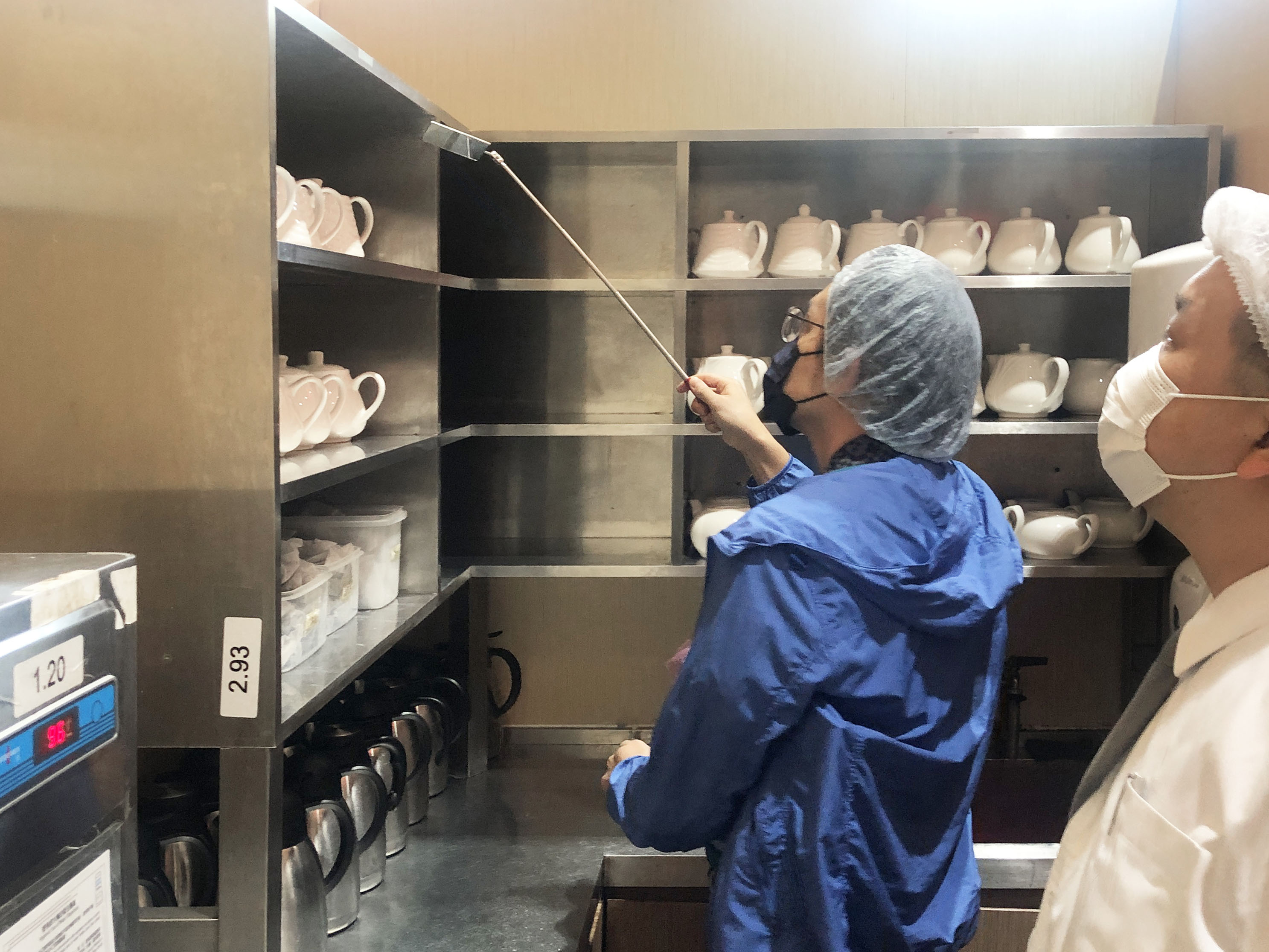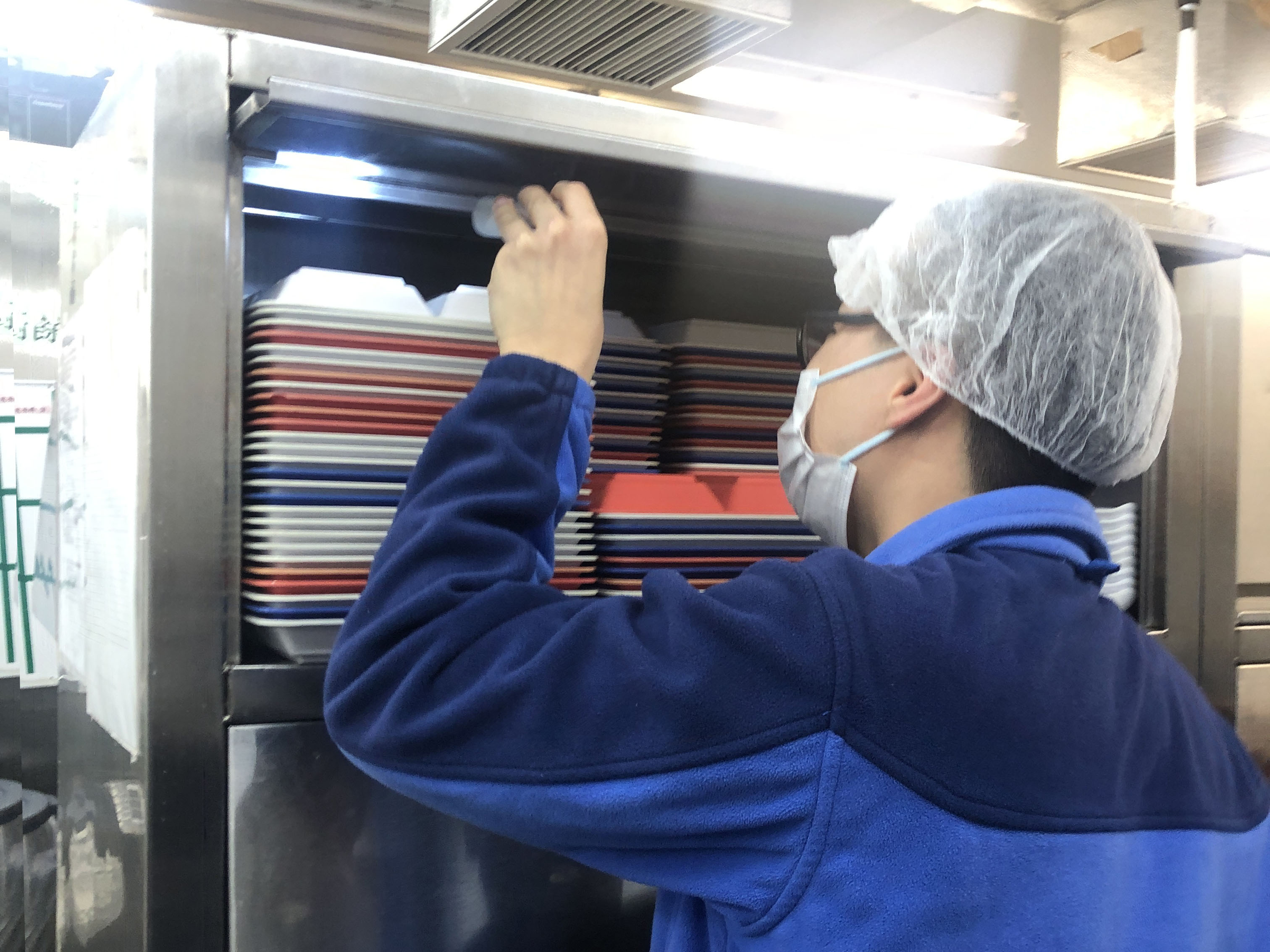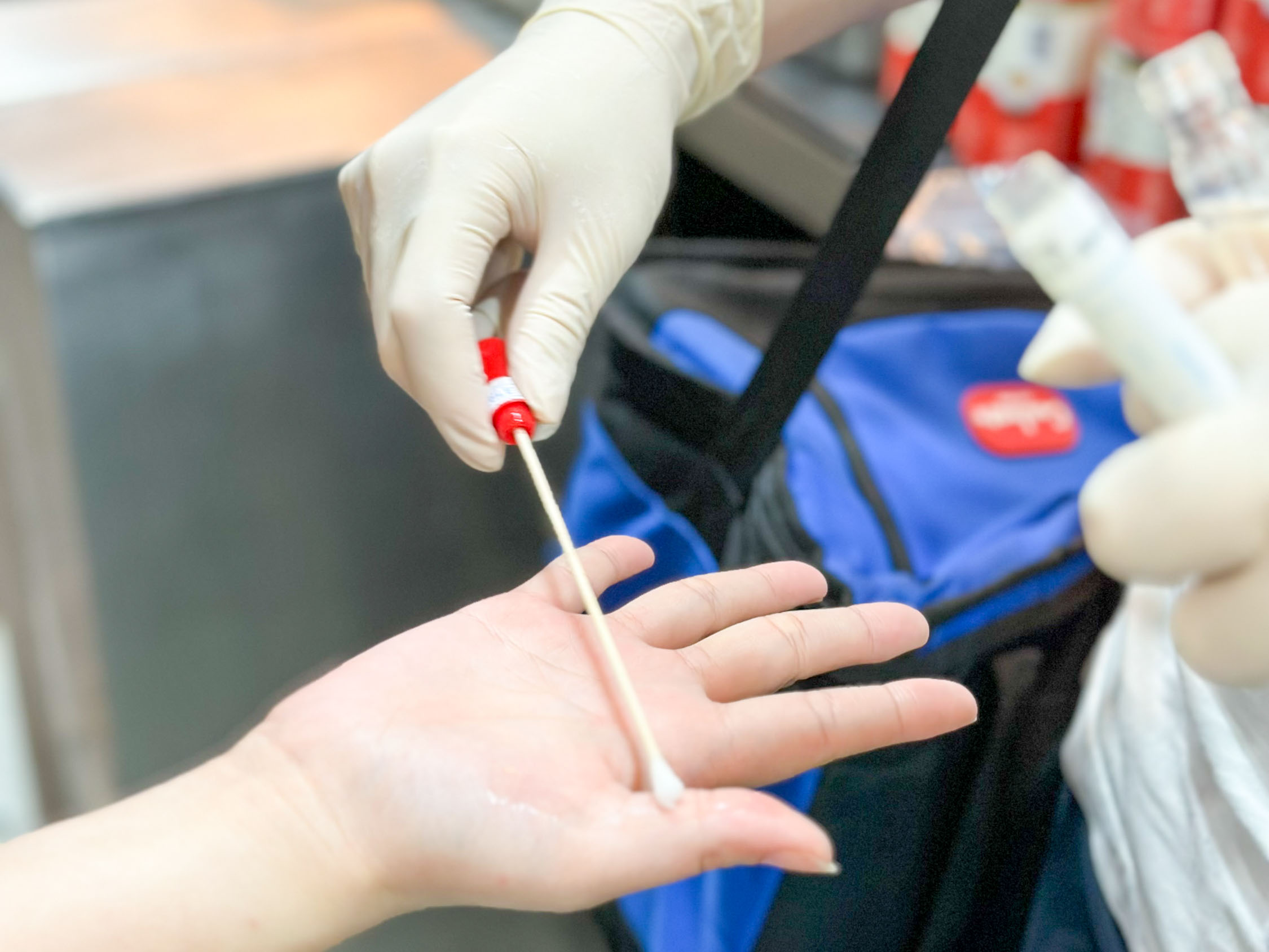SDG 03: Good Health and Well-Being
Providing free consultation and treatments to the elderly
In the “Orthopaedics and Traumatology of Chinese Medicine and Tui Na” course led by Mr Cheung Chun-hoi of the School of Chinese Medicine, students had the opportunity to provide free consultation and therapy to the elderly patients of the Hong Kong Society for Rehabilitation. The students not only provided Tui Na treatment to the service users, but also produced videos to guide the patients on acupressure and home exercises for pain relief. These educational videos enabled more people to learn about the basic treatments of Chinese Medicine for pain relief.
Expressing feelings with creative art
The “Creativity, Well-being and Art Therapy” course instructed by Dr Renee Chiu of the Department of Social Work, included a range of art forms and modalities, such as painting, music and movement, encouraging students and service users to express themselves creatively. The course ended with a celebratory event where students were encouraged to create more artwork together and share their creations with the HKBU community. Students were able to apply their knowledge and skills in art therapy in this course.
PUNCH for your health – Workshop on personal development
From October 2022 to April 2023, 22 students participated in the Thai boxing training and service programme organised by the Undergraduate Halls. After completing 16 sessions of training to enhance their physical fitness and mental resilience, the students undertook the important task of sharing Thai boxing and health management skills with 40 underprivileged children and teenagers from diverse ethnic backgrounds in a 5-hour session. In the closing ceremony, the underprivileged visited HKBU to experience the atmosphere of the university campus.
Mental Health First Aid Standard Course
Thirteen students from various faculties took part in the 12-hour internationally accredited “Mental Health First Standard Course” during the Easter break. Upon completion of the course, students were able to identify symptoms of four common mental health problems – depression, anxiety, substance abuse and psychotic disorder. They learnt how to practise “ALGEE”, the skill of providing mental health first-aid assistance to others. All students enjoyed this enriching learning experience and were able to provide timely assistance to those in need.
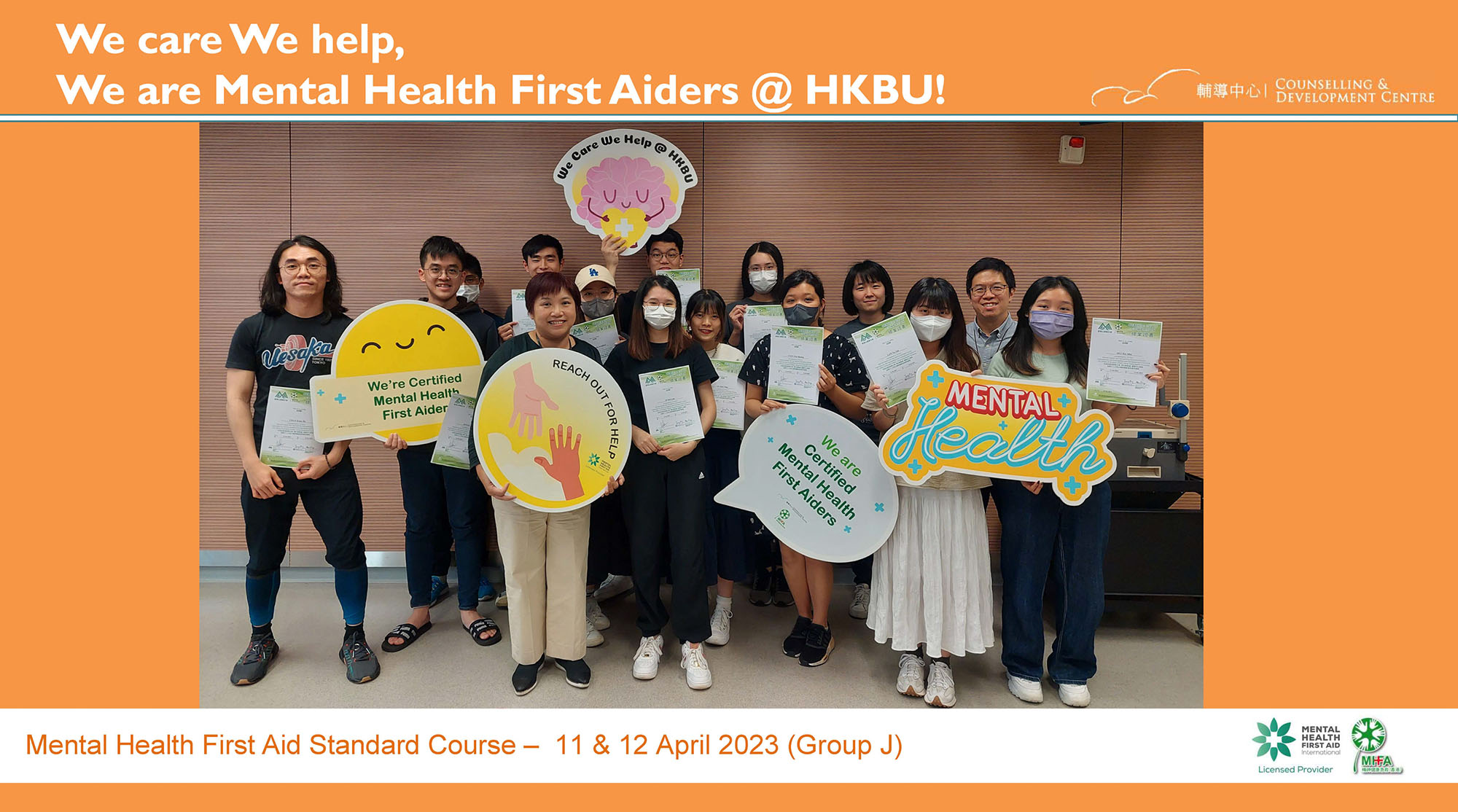



Archon
Academy of Music
Authors: Roberto ALONSO TRILLO, Marek POLIKS
Archon and Demiurge are tools designed to revolutionise music creation. Archon is a user-friendly interface that can work with any audio stored on Google Drive. It is part of a broader vision to move away from traditional musical instruments and studio work, focusing instead on curating music by genre, mood and intensity. This innovative approach aims to free music from human limitations and biases. The project contributes to people’s well-being by facilitating new forms of artistic expression, fostering cultural exchange and community engagement, and encouraging a fresh perspective on music and its role in society as a means for mental and emotional well-being. This aligns with the UN’s objective of fostering good health and well-being for all.
Overcoming data heterogeneity, dependency, and noise: A novel spatio-temporal learning framework (corresponding to the publication title “TransCode: Uncovering COVID-19 transmission patterns via deep learning”)
Department of Computer Science
Author: Jiming LIU
The research aims to answer a challenging and imminent question in infectious disease modelling and control: How can we accurately characterise the spatiotemporal heterogeneity of disease dynamics (which are determined by complex human mobility and contact behaviours), especially when available data are limited or even scarce? To this end, the research team has developed a novel deep transfer learning method to adapt the knowledge that they have learnt from the data-rich regions to the data-limited/scarce regions. Extensive validations on seven metropolises over the world demonstrate the effectiveness of the proposed method in transmission dynamics characterisation and risk prediction. Moreover, the transferred/adapted transmission patterns in the data-limited/scarce regions can be well explained in the real-world context. This work offers practical tools for intervention planning and operational responses in data-limited regions/countries, which are especially useful in the early stages of emerging infectious diseases, where data are usually scarce or even unavailable. Due to its methodological and practical value, this work has been published and selected as a featured article (similar to the Best Paper Award of a conference) by the toptier interdisciplinary journal, Infectious Diseases of Poverty.
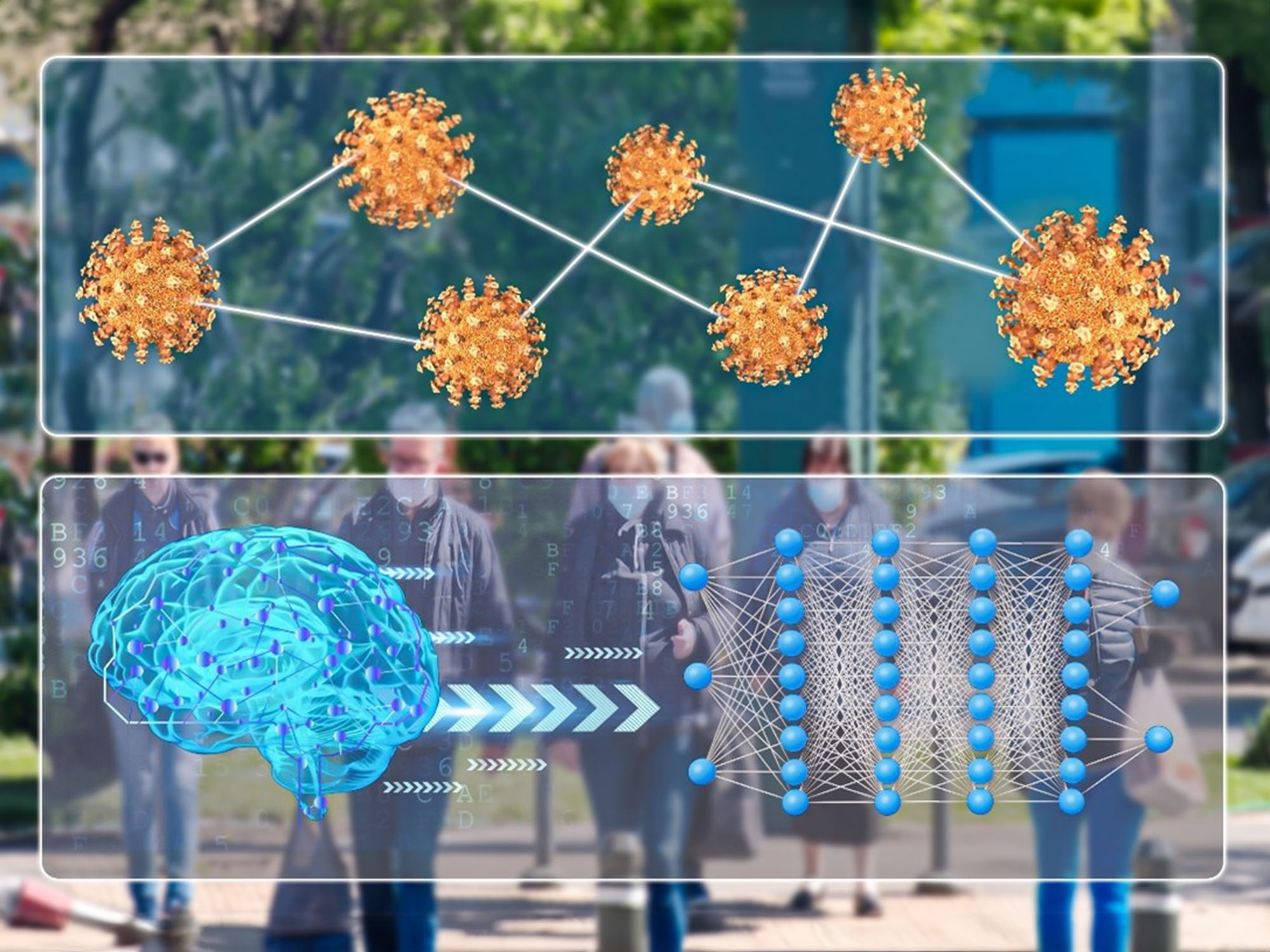

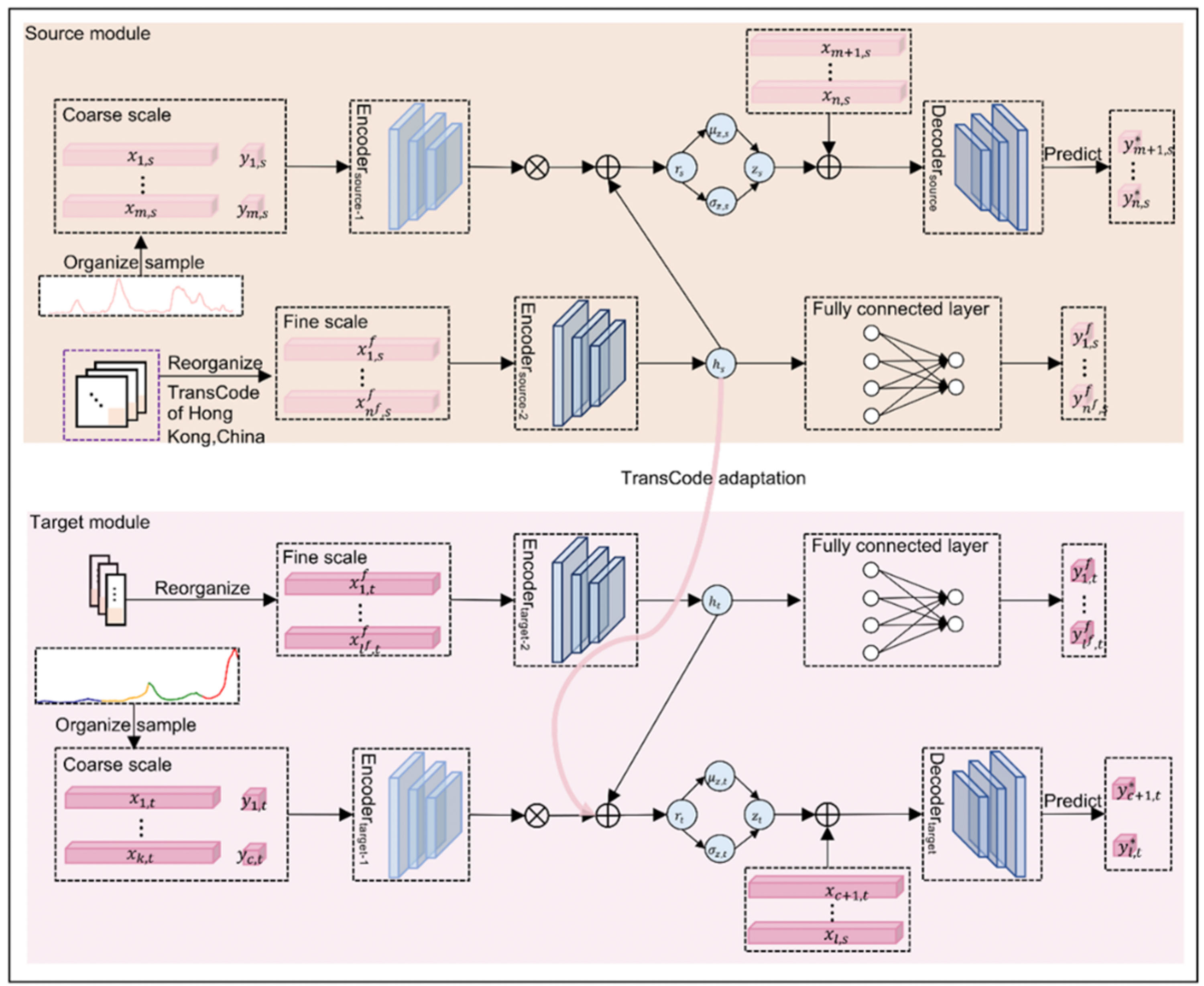

The following two groundbreaking studies offer a promising direction for cancer treatment and the potential development of safe and effective drugs to treat melanoma, bringing new hope to patients with these devastating diseases and ultimately promoting the health and well-being of all.
Brevilin A as a potent anti-metastatic CRC agent that targets the VEGF-IL6-STAT3 axis in the HSCs-CRC interplay
School of Chinese Medicine
Authors: Xueying FAN, Mingjing MENG, Baoting LI, Jincheng TAN, Keyang XU, Shilin XIAO, Hiu-Yee KWAN*, Zhongqiu LIU*, Tao SU*
*Corresponding authors
Liver metastasis is the major cause of mortality in colorectal cancer (CRC) patients, which is influenced by the interaction between CRC cells and hepatic stellate cells (HSCs) in the hepatic tumor microenvironment. Here, we found that CRC cells release VEGF, which promotes the differentiation of HSCs into carcinoma-associated fibroblasts (CAFs). Additionally, HSCs release IL6, which activates STAT3 in CRC cells, thereby enhancing the metastatic potential of the cancer. Importantly, we found that brevilin A, a compound derived from Centipeda minima (L.) A. Br. et Aschers, targets the VEGF-IL6-STAT3 axis in the interaction between CRC cells and HSCs. This compound effectively inhibits colorectal liver metastasis and the growth of cancer. Our findings not only support the potential use of brevilin A as a therapeutic agent for treating metastatic CRC, but also provide a promising direction for the development of other therapeutic strategies that target the VEGF-IL6-STAT3 axis for the cancer treatment.
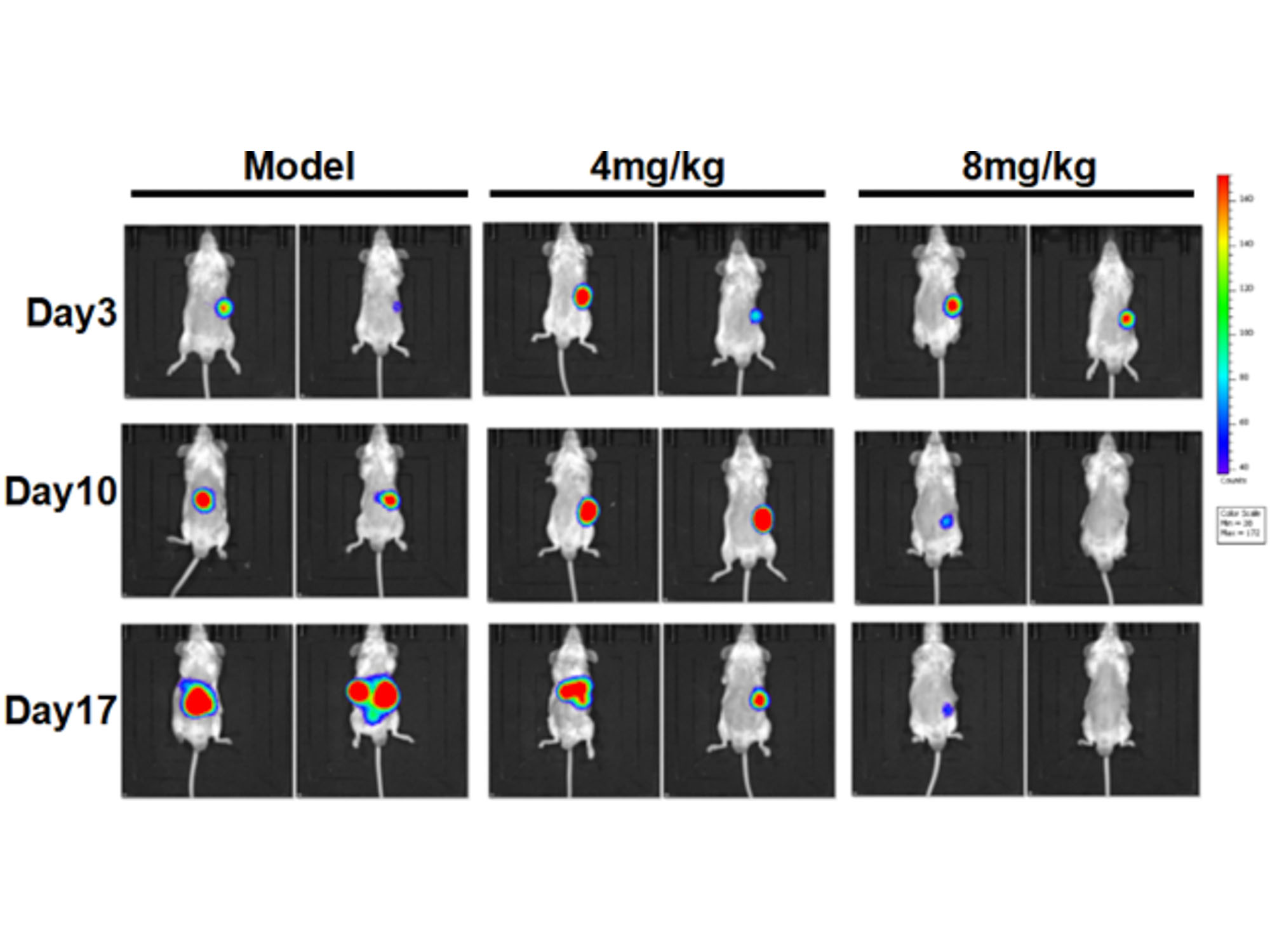

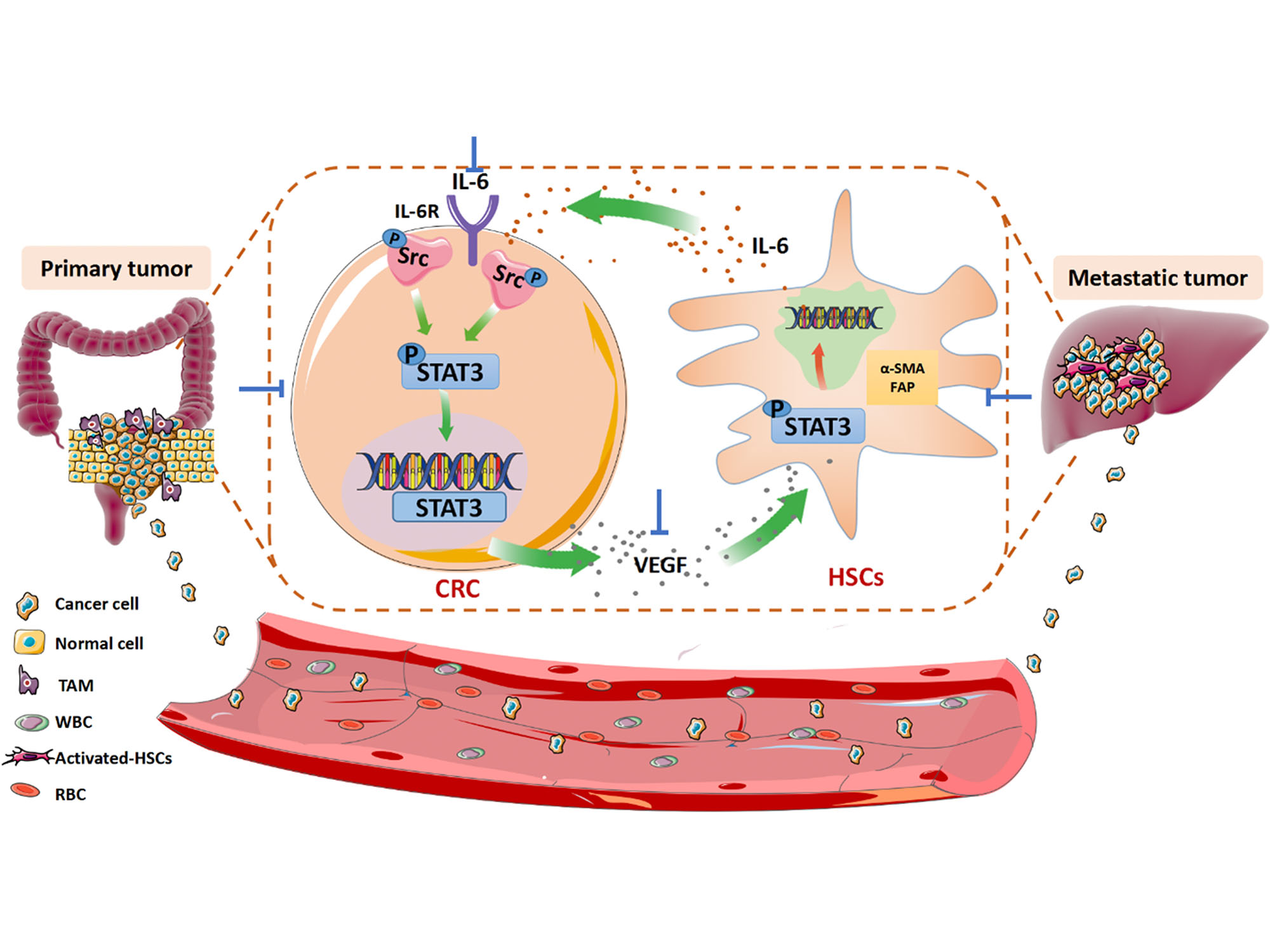

Inhibition of STAT3 signalling contributes to the anti-melanoma effects of chrysoeriol
School of Chinese Medicine
Corresponding authors: LIU Bin, YU Zhi-Ling
Melanoma is an aggressive malignancy with a high mortality rate. STAT3 (signal transducer and activator of transcription 3), an oncoprotein that is related to tumor growth, metastasis, angiogenesis and immune evasion, is considered as an effective target for treating melanoma. Chrysoeriol is a flavonoid compound, and possesses anti-tumor activity in lung cancer, breast cancer and multiple myeloma, but whether it has anti-melanoma effects is still unknown. The research team found that chrysoeriol exerts antimelanoma effects in cell and mouse models, and inhibiting STAT3 signalling contributes to the effects of chrysoeriol. They also found that chrysoeriol directly binds Src, a known upstream tyrosine kinase of STAT3, and suppresses Src activation, enabling further understanding of the mechanisms inhibiting STAT3 signalling by chrysoeriol. Moreover, chrysoeriol showed no obvious toxicity in normal keratinocyte cells and in mice. Thus, chrysoeriol has the potential to be developed into a safe and effective drug for treating melanoma.
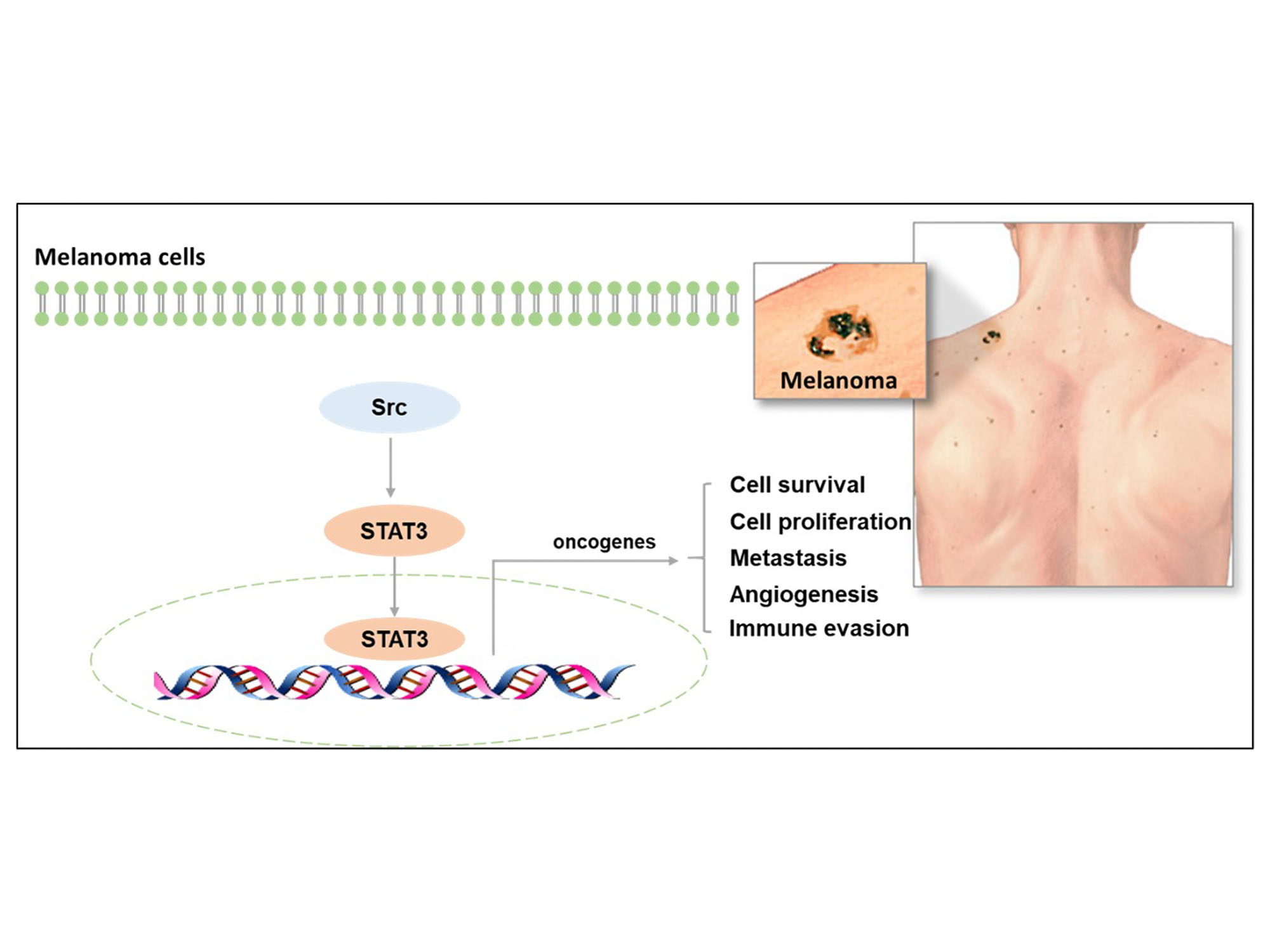

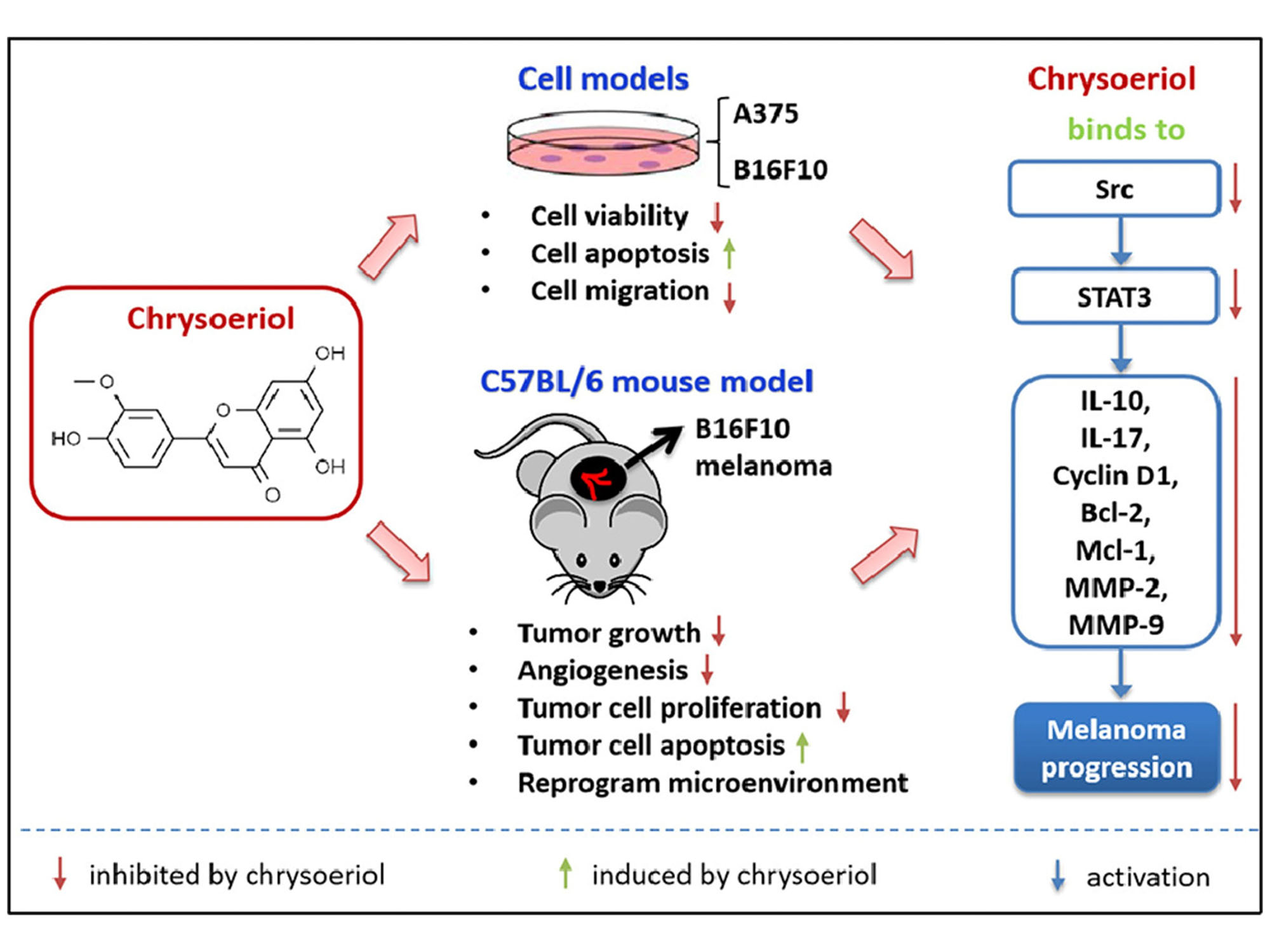

Provision of Chinese medicine healthcare services to the public
The University aspires to provide exemplary and systematic Chinese medicine clinical services by bringing together doctors of the highest calibre to offer the best treatments that encompass both the physical and mental aspects and health.
Since 1999, the University has been leveraging its special expertise to provide a full range of quality Chinese medicine healthcare services to cater for the public’s needs. The School of Chinese Medicine has been making continuous efforts to build its medical team and expand its clinical network. For over 20 years, the University has served more than 3.5 million patients via its extensive network of 10 self-run and seven jointly operated clinics across Hong Kong.
Various initiatives have been implemented to ensure the healthcare services are accessible and affordable for different groups. For example, different levels of discount are offered to elderly patients and credit card holders; discounted services are extended to individuals under the Comprehensive Social Security Assistance Scheme and elderly people in need in collaboration with partners.
To promote a deeper understanding of Chinese medicine within the community, the division extends the opportunity of free consultations on 1 May each year. Every July, the public can sign themselves up for free Chinese medicine body constitutional tests, and receive advice for better health management. Seminars/workshops are also provided regularly to the public with the objective of emphasising the importance of health education.
Apart from serving the community, these clinics also provide clinical teaching for Chinese medicine students and enable academics and Chinese medicine experts of the School of Chinese Medicine to conduct clinical studies to expound the effectiveness of Chinese medicine by way of evidence-based medicine.
Chinese Medicine Hospital
As the contractor for the service deed of the first Chinese Medicine Hospital (CMH), HKBU is committed to promoting the standardisation and internationalisation of Chinese medicine, while incorporating sustainability into its medical service provisions and daily operations.
CMH is planned to commence operations in 2025 and will progressively offer in-patient, day-patient, out-patient, and community outreach services. The CMH will also offer Chinese medicine services in six specialist areas, including internal medicine, external medicine, gynaecology, paediatrics, orthopedics and traumatology, and acupuncture and moxibustion, along with a series of special disease programmes.
The establishment of the first CMH will elevate Chinese medicine education, research and services to new heights, with a specific emphasis on strengthening and raising Chinese medicine healthcare standards in Hong Kong in a sustainable manner.
Health promotional and outreach programmes
The Medical Clinic Welcoming Programme is offered to first-year students annually for free. This comprehensive programme includes a range of essential health assessments such as height and weight measurement, blood pressure and pulse measurement, colour vision and visual acuity examination, as well as a review of health questionnaire.
Furthermore, throughout the year, students, eligible staff and their family members could have the opportunity to receive human papillomavirus vaccination and/ or seasonal influenza vaccination at a concessionary rate through the collaboration with local medical institutions. Informative talks on topics such as emotional health, health diet were organised to promote both physical and mental health well-being among the University community.
The University regularly holds seminars and webinars for students, focusing on sexual and reproductive healthcare topics. Healthcare specialists are invited to share their knowledge and experience with the students. In August 2023, a talk on the topic “Common gynecological conditions and contraception” was conducted.
Healthcare services
The University prioritises the health and well-being of its community by providing comprehensive healthcare options and promoting the integration of both Western and traditional Chinese medicine practices.
The University provides quality on-campus healthcare and medical services to ensure the wellbeing of the University community. Off-campus dental services are also available at a discounted rate, further extending accessible and affordable healthcare options to the University community. Students and staff have convenient access to medical services at the University Health Services Centre located on Ho Sin Hang Campus, which is run by an appointed medical group. In addition, the School of Chinese Medicine operates clinics both on and off campus. These clinics offer Chinese medicine clinical services at a discounted rate to students, eligible staff and their family members.
Mental health support
In addition to promoting physical well-being, the University offers on-campus mental health support. The Counselling and Development Centre provides free and confidential counselling for eligible students, as well as consultation and referral services for staff. Our team of Psychological Counsellors is dedicated to assisting students who may be grappling with emotional distress, or any other concerns related to their well-being.
Shared sports facilities
The University offers a diverse array of excellent facilities and recreational sports experiences for athletes, students, staff and their immediate family members, and alumni. Staff and students have the privilege of inviting guests from the general public to enjoy these facilities during their visit. The amenities include dance and table tennis rooms, a fitness centre, squash courts, an outdoor swimming pool, tennis courts, and multi-purpose halls suitable for various activities like badminton, basketball, and volleyball.
Smokefree campus
Recognising the risks and hazards associated with direct, second-hand, and third-hand smoking, the University has implemented a stringent smoking ban throughout all areas of the campus. Furthermore, the University actively promotes and supports smoking cessation. To underscore the paramount importance of maintaining a smoke-free environment, the University has established a Smokefree Policy that applies to all members of the University community in both indoor and outdoor spaces within the campus premises.
Fostering campus health and safety
To ensure the health and safety of the University community, a variety of policies and programmes are regularly implemented and executed. These initiatives, which include regular inspections, testing, and surveys, are launched and adhered to professional standards.
For example, for air quality monitoring, the University conducted a comprehensive annual survey of indoor air quality throughout the entire campus. A total of 321 samples were tested, and each one achieved either an excellent or good class according to the Indoor Air Quality Certification Scheme established by the Environmental Protection Department.
Additionally, regular food safety audits are conducted to manage the overall hygiene conditions and minimise the likelihood of food-related incidents at all catering outlets located within the campus.
